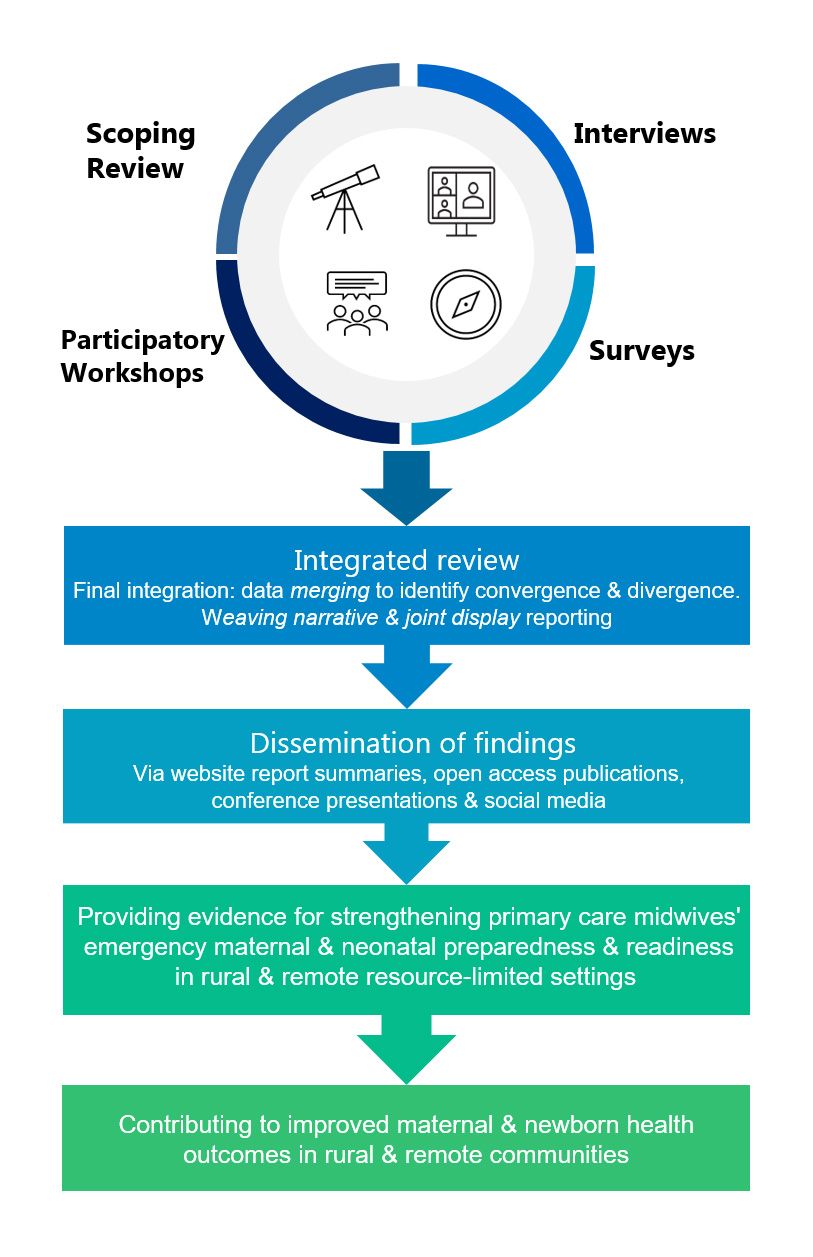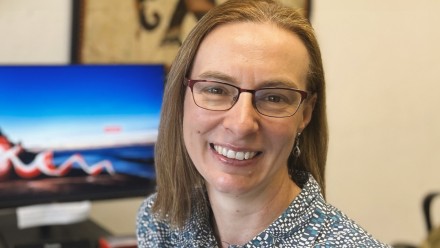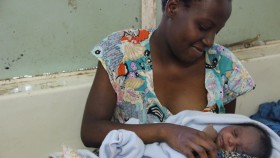Strengthening primary care midwives' preparedness & readiness for emergency maternal & neonatal care in rural & remote resource-limited settings
Photo credit: Samy Rakotoniaina/MSH
About
Primary care midwives are essential to improving the health of women and babies in rural and remote resource-limited settings. This vital workforce must have the essential knowledge, skills, and resources to provide quality care specific to their work context. This is particularly imperative in caring for women and babies with complications where delays in quality emergency care can lead to morbidity or death. Yet, many midwives are not adequately prepared or supported to meet the demands of this challenging role.
Despite the importance and complexity of providing quality midwifery care to rural and remote communities, the research evidence for preparing and supporting midwives in this context is limited. This PhD mixed-methods study aims to identify the needs and opportunities for strengthening primary care midwives' emergency maternal and neonatal care preparedness and readiness in rural and remote resource-limited settings. By exploring the experiences and insights of midwives, midwifery educators, health service managers, policymakers, and professional experts, we aim to provide evidence for translation into policy, education and practice.
A summary of the study’s research methods, dissemination and anticipated outcomes are presented in the infographic below.

Thank you to everyone who took part in our surveys – we appreciate your support of this research study.
Following the draw at ANU campus, ACT on 4 December 2023, as per the ACT Lotteries Act 1964, we are pleased to announce the winners of the US$75 Amazon gift vouchers are:
Midwives/Nurse-midwives survey: Respondent 7, PN
Midwifery Educators/Managers/MOH survey: Respondent 13, BA
| Participant Information Sheets | |
|---|---|
 |
Survey: Midwives and Nurse-Midwives |
 |
Survey: Midwifery Educators, Health Service Managers, Ministry of Health Personnel |
 |
In-depth Interviews |
 |
Participatory Workshops |
| Research Findings—Summary presentations & documents | |
|---|---|
 |
TBA |
| Publications | |
|---|---|
 |
TBA |












